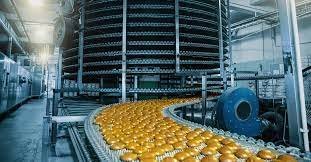Ice Cream Processing Technician

Ice cream, a beloved dessert enjoyed worldwide, is more than just a treat; it’s a culinary art form perfected through careful processing and meticulous attention to detail. Behind every scoop of creamy goodness lies the expertise of ice cream processing technicians, individuals dedicated to ensuring that each batch meets the highest standards of quality and taste. In this article, we delve into the fascinating world of ice cream processing technicians, exploring their role, responsibilities, and the intricate process involved in crafting this frozen delight.
Introduction to Ice Cream Processing Technician:
Ice cream processing technicians play a crucial role in the production of ice cream, overseeing various stages of the manufacturing process to ensure that the final product meets consumer expectations. Their responsibilities encompass a wide range of tasks, from sourcing ingredients to monitoring equipment performance and maintaining strict quality control measures.
Responsibilities of an Ice Cream Processing Technician:
- Ingredient Selection and Preparation: One of the primary responsibilities of an ice cream processing technician is to select high-quality ingredients that contribute to the flavor, texture, and overall quality of the final product. This includes sourcing fresh dairy products, fruits, nuts, flavorings, and other ingredients essential for ice cream production. Technicians must also ensure that all ingredients meet food safety standards and undergo thorough inspection and testing before use.
- Recipe Formulation: Ice cream processing technicians are often involved in the formulation and development of new recipes and flavors. They experiment with different combinations of ingredients, adjusting ratios to achieve the desired taste, consistency, and texture. This requires a keen understanding of the science behind ice cream production, including the role of fats, sugars, emulsifiers, and stabilizers in creating the perfect blend.
- Equipment Operation and Maintenance: Ice cream processing technicians are proficient in operating and maintaining a variety of specialized equipment used in ice cream production, such as batch freezers, pasteurizers, homogenizers, and continuous freezers. They monitor equipment performance, troubleshoot issues, and ensure that all machinery is properly cleaned and sanitized to prevent contamination.
- Quality Control: Maintaining quality control standards is paramount in the production of ice cream. Ice cream processing technicians conduct regular quality checks throughout the manufacturing process, monitoring parameters such as temperature, viscosity, and overrun (the amount of air incorporated into the ice cream). They also sample finished products to assess flavor, texture, and appearance, making adjustments as needed to maintain consistency and excellence.
- Safety and Sanitation: In addition to ensuring product quality, ice cream processing technicians are responsible for upholding strict safety and sanitation protocols in the production facility. This includes adhering to food safety regulations, implementing proper hygiene practices, and regularly inspecting equipment and facilities for cleanliness.
The Ice Cream Production Process:
The production of ice cream is a multi-step process that requires precision and attention to detail at each stage. While specific techniques may vary depending on the recipe and equipment used, the basic steps involved in ice cream production typically include:
- Mix Preparation: The process begins with the preparation of the ice cream mix, a blend of milk, cream, sugar, stabilizers, emulsifiers, and flavorings. The mix is heated and homogenized to ensure uniform distribution of fat globules and other ingredients, resulting in a smooth and creamy texture.
- Pasteurization: The mix is then pasteurized to eliminate harmful bacteria and pathogens while preserving the flavor and quality of the ingredients. Pasteurization involves heating the mix to a specific temperature for a set period, followed by rapid cooling to prevent overcooking.
- Aging: After pasteurization, the mix is allowed to age for a period of time, typically several hours to overnight. Aging allows the flavors to meld and develop, resulting in a richer and more complex taste.
- Freezing: The aged mix is transferred to a freezer, where it undergoes rapid chilling and agitation to incorporate air and prevent the formation of large ice crystals. This process, known as “overrun,” contributes to the light and airy texture of ice cream.
- Packaging and Hardening: Once the desired consistency is achieved, the ice cream is pumped into containers or molds and immediately placed in a blast freezer to harden. This rapid freezing process ensures that the ice cream maintains its texture and prevents the formation of ice crystals.
- Storage and Distribution: Once hardened, the ice cream is stored in temperature-controlled freezers until it is ready for distribution. Ice cream processing technicians oversee the storage and shipping process, ensuring that the product remains frozen and maintains its quality during transit.

Conclusion:
Ice cream processing technicians play a vital role in the production of one of the world’s most beloved desserts. From selecting the finest ingredients to meticulously monitoring the production process, these skilled professionals are dedicated to ensuring that each batch of ice cream meets the highest standards of quality and taste. Through their expertise and attention to detail, they continue to delight consumers with a diverse array of flavors and textures, making ice cream a timeless indulgence enjoyed by people of all ages around the globe.


